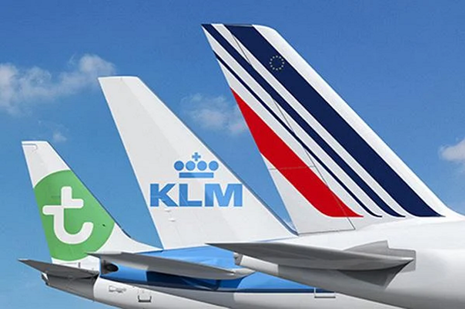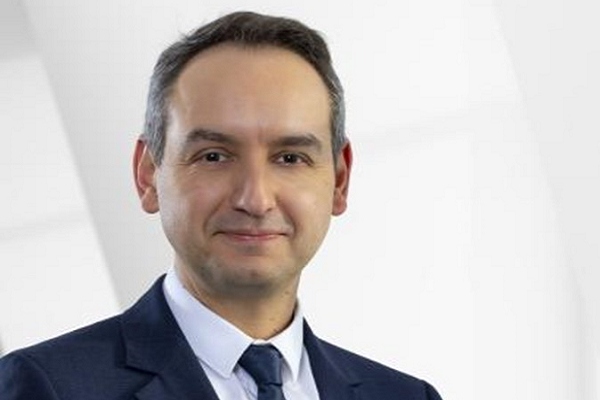
An interview with Alexandre Boissy, Air France-KLM’s Corporate Secretary.

Alexandre Boissy is a graduate of the École des Ponts ParisTech (originally called École Nationale des Ponts et Chaussées [National School of Bridges and Roads]).
He joined Air France in 1999, occupying various positions including Consultant, Manager, and Operational Research Manager. In 2016, he is appointed Chief of Staff to the Air France-KLM CEO and Secretary of the Group’s Executive Committee. From 2018 to 2022, he holds the position of Assistant Secretary General and Chief of Staff of the Air France-KLM Presidency as well as Director Communications, Customer Research, and Brand Strategy of the Group. On May 18, 2022, he is appointed permanent representant of Air France-KLM at the Air France Board of Directors. Since December 21, 2022, he is the Corporate Secretary of the Air France-KLM Group.
Air transport experienced the biggest shock in its history during the COVID pandemic. This could have been fatal, but our sector has demonstrated its resilience, its strategic importance, and its major contribution to economies. This year, air passenger traffic will return to pre-Covid levels. The necessity to travel for business reasons, the aspiration of young people to discover the world, the need to visit loved ones around the world, are therefore still very strong. At the Air France-KLM group, we are addressing these perspectives all the while delivering an ambitious decarbonization strategy. To achieve this, we are asking national and European decision-makers for a coherent framework that allows us to reduce our greenhouse gas emissions whilst remaining competitive in the face of global competition.
In line with the Paris Agreement on climate change, the European Union has set for itself the objective of achieving carbon neutrality by 2050. To achieve this, structuring legislative provisions have been taken. We particularly welcome the mandate to incorporate Sustainable Aviation Fuels (SAF) - born from the ReFuel EU Aviation regulations while keeping a close eye on distortions of competition at Europe's borders. Energy companies must now respond to the growing demand of us airlines for these alternative fuels. And for their part, European companies pay rights to emit carbon; they are more encouraged than ever to increase their environmental performance. However, we did not wait for the establishment of a regulatory framework to heavily invest in “net zero” by 2050.
At Air France-KLM, we have decided to invest up to 2 billion euros per year until 2030 to renew our fleet with aircraft designed to reduce fuel consumption by 25% and noise emissions by up to 50%. Today, we are the largest SAF user worldwide, having purchased 16% of global production in 2023. In comparison, we only consume 3% of global jet fuel.
Our environmental transition comes with a very significant cost, which we can only bear with the mobilization and support of public authorities. We need a competitive SAF production sector and a level-playing field when it comes to competition. Today, European norms can lead to distorted competition, notably at its gates. This could translate into demand potentially shifting to other international carriers. It would by no means reduce carbon emissions. The European Union must implement adjustment mechanisms and do so quickly.
Studies show the share of air transport in global greenhouse gas emissions fluctuates around 5% (non-CO2 effects included). This is a significant contribution which must be reduced by all means. However, we must also face what is sometimes an erroneous perception from the general public. We can cite the example of the common belief that air transport is reserved to the happy few. On the contrary, air travel has become considerably more popular in recent decades. Sociological studies show that air passengers generally have the same socio-professional profile as high-speed train passengers.
Furthermore, our sector is continually innovating. Between 1990 and 2018, aviation halved greenhouse gas emissions per passenger kilometer transported. Between 2005 and 2019, Air France's CO2 emissions fell by 6% in absolute value, while traffic increased by 32%.
Stay tuned for the second part of the interview!
Additional Information: